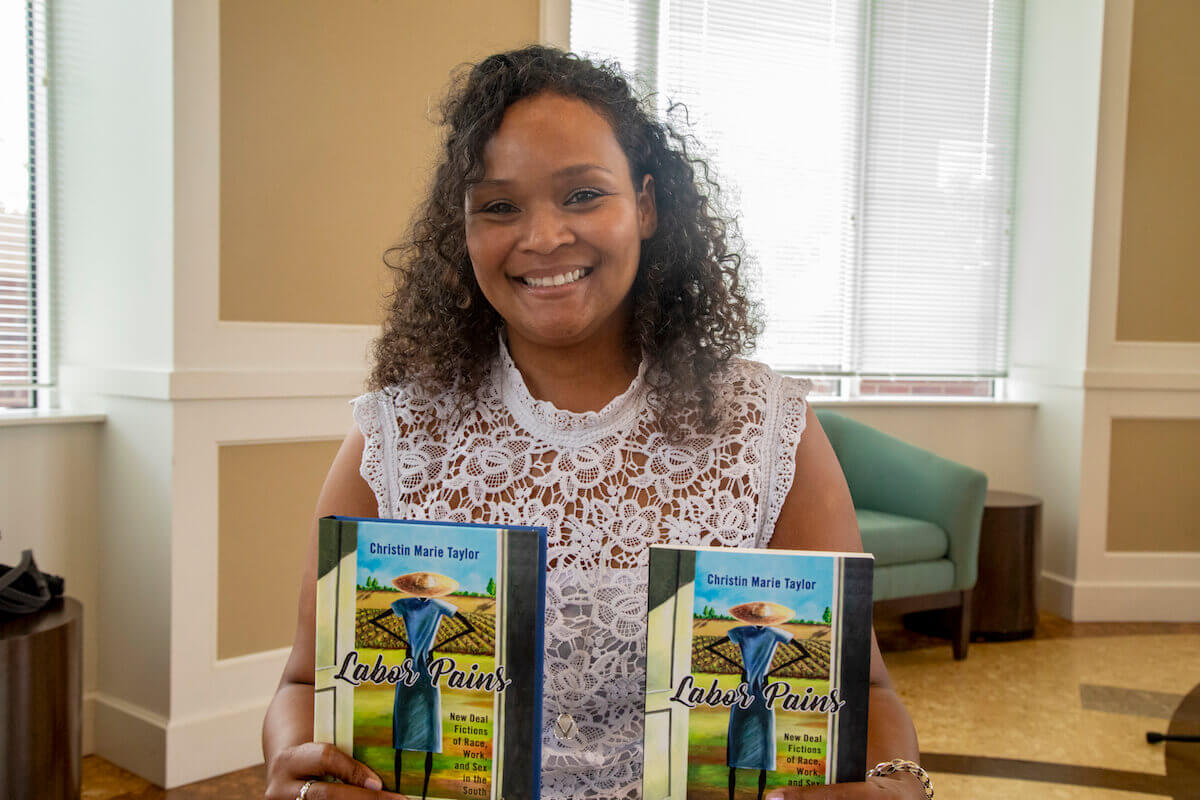Shenandoah University Assistant Professor of English Christin Marie Taylor, Ph.D., has published her first book, Labor Pains: New Deal Fictions of Race, Work, and Sex in the South which is a part of the Margaret Walker Alexander Series in African American Studies.
‘Labor Pains’ grew out of my dissertation. That project began with my desire to recast the way scholars think about 20th-century literary representations of African American southern life (as largely about black men’s experiences of labor hardship like sharecropping). I wanted to explore the ways fiction writers imagined a fuller portrait of human experience.”
She reworked the dissertation to focus specifically on the New Deal era and the labor protest traditions of the Popular Front, which was a radical coalition of writers, artists, activists, unionists, and allies who united between the 1930s and the 1960s.
Within this frame, I looked at how southern writers highlight race, gender, feeling, and desire as essential parts of labor protest. For me, the idea of the ‘labor pain’ captured a wide and ambiguous range of interactions between work and feeling. This revision took two years to complete, with starts and stops and a lot of teaching throughout the process.”
Often, southern writers aren’t readily identified with the Popular Front’s labor politics, she said.
But southern writers do something new with depictions of African American labor by expanding what counts as ‘work.’ The southern writers I examined include aspects of work that we often overlook, especially how the pressures of race and gender, feeling and desire are embedded in the many tasks we perform. By centering on the felt experience of work, these writers invite readers to rethink the seeming successes and apparent failures of their times.”
As for her readers, she said she hopes they come away from the book understanding three primary points.
- Fiction about African American southern work encompasses a wide range of portrayals that explore the human experience, what it means to be a human being, and how we may all reach the fullest potential of our humanity.
- So much of how we feel about our labor, from paid work and unpaid work, to navigating professional and personal relationships, to giving birth and raising children, is rooted in what we ignore—the sensations we feel in our bodies, in our emotions, and in our psyches, which ultimately shape how we feel about ourselves.
- When we think and talk about race, class, or gender-based oppression we sometimes inadvertently ‘other’ the people and communities we discuss by focusing on material conditions, statistics, wealth gaps, injustice, and so on. In this way, we isolate these experiences as foreign, particular, or separate from us. In the novels I examine, the reader is not able to distance such experiences or render them as ‘other.’ Instead, the novels process the reader by way of feeling, leading us to think about ourselves—the way we feel and the ways we are complicit—even as we sympathize with the plight of so-called ‘others.’
In future work, Taylor said it’s likely she’ll delve further into her interests in African American literary naturalism, environmental justice, and literary portrayals of women’s work.
I may explore these topics together or separately. I’m not sure yet, but I am very excited!”




